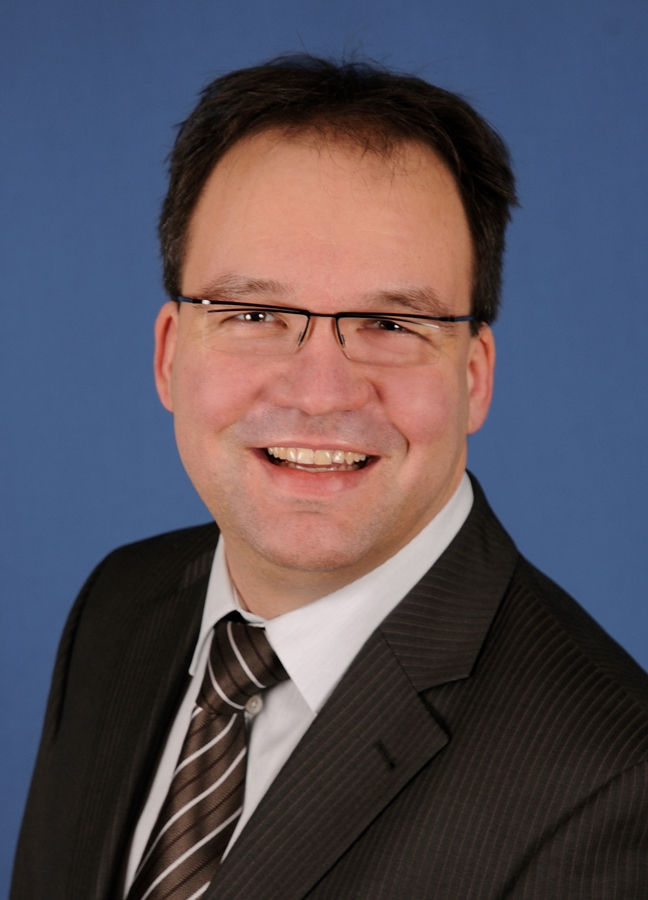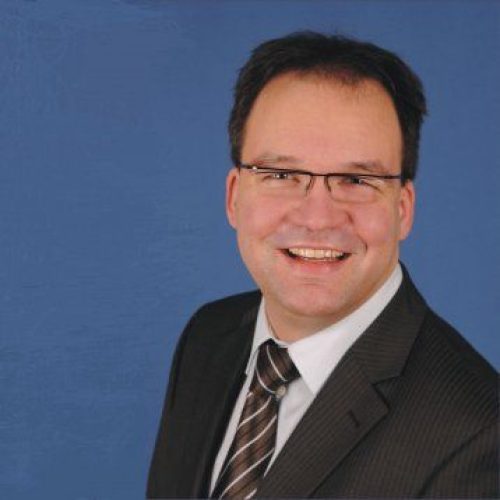The cooperation of REHAU and BCC (now All for One Poland) began in 2009, when REHAU, planning the rollout of new processes and SAP system in its Polish branch, was searching for a local implementation company, ready to provide support in the finance area.Like many projects of this type, it was expected that BCC would know the laws of Poland in the area of finance and taxation and have experience in adapting SAP solutions to them. The system was launched in May 2010.
After this project, the competences and cooperation with BCC were evaluated very positively. Therefore, while starting the preparations for rollouts in subsequent countries, first in Serbia, then in Finland and the three Baltic countries, REHAU decided to use the support of BCC in these projects.
During the projects in these countries, the main work contractor and coordinator was REHAU Rollout Team. The role of the “local support” in the field of financial law and other necessary adjustments was taken by the REHAU employees from these branches, whose business competences were sufficient to define the requirements. The solution e.g. to the Serbian or the Lithuanian requirements were then built by the REHAU team together with BCC consultants.
BCC provided the support in the field of finance and materials management, and sales and distribution.The significant part of BCC work also referred to SAP standard extensions in ABAP language, and to SAP PI technology-based interfaces (SAP Process Integration).
The Serbian branch has been availing of the optimized processes and SAP system already since March 2011. In the Baltic countries and in Finland, the launch took place in September 2011.
Processes and systems cannot be defined separately. For this reason REHAU brings together the SAP-Know-how with their process Know-how. We are building own SAP competences together with the support of external consultants – so the strategy of system maintenance in REHAU can be summed up. With such a philosophy, it is essential to use the services of a professional provider of SAP services. We talk with Thomas Zimmerer, Department Manager Strategic Projects Southeast Europe at REHAU, Austria, project leader for this rollout projects within the REHAU Group, about the management and development of an integrated system for a global corporation.
What is the role of IT infrastructure in a global company, operating over 50 countries, involved in production and distribution for such demanding industries as automotive and construction?
REHAU has been growing very fast over the last 60 years. The IT infrastructure was more or less based on decentred and self-developed systems. There have been different solutions in place. REHAU has to be up to date with reliable and optimized processes at all times to support our customers in their high requirements. For this reason REHAU consolidated nearly all of their IT-Systems at a new and state-of-the-art computer center in our headquarter in Rehau, Germany. With the newest technology, an IT-Cluster has been built up and now it supports all business around the world. The SAP project is an important step to centralize all ERP-Systems worldwide in one location and with the same solution.
REHAU is one of the innovation leaders in the branch and is also developing new products together with their customers. REHAU is supporting a lot of customers with JIT (Just-in-Time) and JIS (Just-in-Sequence) services, and their production is depending on a 100% reliability on REHAU Supply Chain. For this reason, the requirements for assurance of the systems are very high.
Business and IT work hand in hand. Processes cannot be defined without the support of IT, while IT cannot implement solutions without a clear process. Nearly every process in the company is based on the support of an IT system. The tools to support the business or run the business have a continuously increasing role and are a significant criteria in developing a competitive advantage in the business to fulfill the customer needs.

Thomas Zimmerer, Department Manager Strategic Projects Southeast Europe, REHAU Group
Please tell us about the SAP system at REHAU Group.What is its functional scope and geographical coverage?
SAP is the strategic ERP platform and business solutions within REHAU. REHAU has been using SAP systems for a long time in several countries with different scopes.
In 2006, a new project – REHAU Best Practice – was started to optimize business processes and to harmonize them all over the world to better serve the customers in the future. This started with the rework on the business models. In the second step, all Business Process have been redefined. They are now a global REHAU Standard worldwide. In 2007/2008, a global SAP-template was built on the basis of these global processes. The first implementation took place for the Polish branch in 2009/2010. It covered all areas, from CRM, to Sales, Supply Chain, Production, to Finance and HR.
The REHAU Best Practice Processes and Systems are implemented in Poland, Serbia, Finland, Latvia, Lithuania and Estonia. In 2012, the biggest country – Germany – is going live and further rollout projects will start. We will have more than 4000 SAP-users in 2012.
With the REHAU Best Practice SAP-system, all existing solutions (incl. existing SAP-implementations) will be unified and centralized in one new corporate solution. This will cover all countries around the world. In the first phase, the rollout takes place in the strategic business units – Construction and Industry. It will be finished by the end of 2014. Afterwards, the rollout for the Automotive area will follow.
How do you manage the system, its maintenance and development?
The management and maintenance is basically done through REHAU computer center. For projects or high demands on resources, external support is also used.
In the headquarters there is a team of ca. 65 people who build up the template, run the system and work on the Rollout Germany. They also cover the Template Governance Team and the second level Support. In Vienna, there are two rollout teams with 15 people. Both are supported by several consultants. In all countries, there are Key Users who were a part of the rollout project and do the first level support afterwards.
The projects are always carried out by a mixed team. The lead is always within REHAU, while peaks or even long term demands for additional resources are covered by external consultants, who also have special experience on topics where REHAU staff are not expert.
Currently, the rollouts of the system are being implemented in the European companies of REHAU, country by country.What is the basis for the rollouts?How was the system template built?
The scope of the template has been defined on the basis of the process definition. It should cover all business processes within the company. The template has to cover all global processes worldwide.
We rollout the global template and the global processes. Changes or add-ons are only allowed for legal and strong business requirements. It is an exception which is very limited. The rollout team is only allowed to do local customizing and build up the organisational structure. All changes to the global processes and template have to be approved by the central governance team.
Most of the local requirements are legal requirements in the finance area. But they also have been very limited within the last rollouts. The FI template was based on IFRS-Standards which are used at REHAU worldwide for internal book keeping. If there are gaps pertaining to local requirements, we only work out those within the rollout project.
How is the transfer of good business practices made in the corporation, between countries?What is the SAP ERP role in this process?
There are nearly no process changes in most of the rollouts. If there is a need, it will be defined as a global or a local process. Global process will all be changed in the template system and rolled out to all countries at the same time.
The rollout project Poland was the pilot for the implementation of this solution. It was our aim to get a proof of concept and we got a lot of smaller and bigger remarks from Poland. This started in the CRM and covered all areas, such as delivery process or production planning. This experience has been considered to improve the template and since 1st of January 2012 the second version of the template is in place.
Even large companies that maintain own teams for administration and current user support often avail of broad external support for implementation projects.Why did REHAU decide to build their own strong competences?
REHAU has a very broad own competence in the scope of IT and SAP system since nearly 20 years and is supported by partners in the field of development or administration. External partners assist us in those areas where specific competences are required or the company lacks its own resources (e.g. in case of development work accumulation).
Because the project is not only an SAP project, it is very important to have REHAU’s in-house know-how at every critical place of the project. Even if processes are defined, decisions on details are being made all the time throughout the project. These decisions have a big impact on the future business of REHAU and can only be made by internal staff. That is why it is so important for us to maintain our own strong SAP/IT competence.
How are the big IT projects and changes in the systems for many countries managed with such differentiated economies and legal systems as in Central and Eastern Europe?
Cultural differences between Germany, Austria and the CEE countries are significant. Especially in the rollout project, the working together has to be different in every country. Even when we roll out a global template, the people in the countries have to be involved and have to see the project as their project. After the roll out, the differences are in the way of working with a very standardized and structured system. Those differences bring up a different need in checking the way of working more often or less often. But we get a good feeling from the calls to the support when they try to work with the system how we had told them, or try to find their own way around it.
The differences to the existing processes are worked out during the blueprint phase. Most of the open questions can be explained and need only a process change from the old process to the new global process. All topics which cannot be solved in this way are worked out in detail. Legal requirements are checked with local consultants, our auditors and if needed – with public authorities.
The cultural differences are only considered in the working together and in a lot of small things, not in the overall project phases. All project methods are also defined in a rollout “template” which is used and only scaled for every rollout project.
As to legal matters, the differences between countries in Europe aren’t so big, despite whether we are talking about a European Union country or a non-member country.
For example, in Serbia, there were fewer legal differences to our template than in Poland. Of course, the differences are bigger between European countries and other continents. But in Europe a lot of countries outside the EU have adjusted their law to the EU and IFRS-standards more carefully than some countries inside.
The members of the rollout team have different experience and approach to work – what is the most important thing in managing and motivating them?
For our experienced rollout team it is not a big problem. It is their project and they like to run projects. If you choose the right consultants personally, you have to integrate them with your team because they have to feel as members of your team. Of course, it is a longer process and this is one of the reasons why we go with the same consultants as long as possible. But the biggest challenge is to involve the key users: 1) get them out of their daily business, 2) change their way of working from daily business to project work, 3) motivate them to meet the project goals. When all this has been done, the most important criterion for success of the project is to build up the project and SAP know-how at the key users’ as fast and as thoroughly as possible.
What does the organization of IT/SAP projects look like at REHAU?
Our strategy is to have a flexible mixture of in-house experience and external partners who support us in special topics and when we have not enough resources for projects.
The Template project was managed from the headquarters in Germany. But all the regions have already been involved there. The rollouts are managed by the rollout team which is working global but located in the region Southeast Europe. For every rollout, there is also a person responsible from the country (e.g. the local manager) and the Regional Executive Board. The key users are normal users who work in the area they should cover in the project. This means they come from local branches.
On these projects, the role of the “local support” in the field of financial law and other necessary adjustments was taken by the REHAU employees from these branches, whose business competences as well as the knowledge of SAP solutions were sufficient to adapt these solutions to the Serbian or Lithuanian requirements.
During the template project, there were several consultant companies involved, with specialists for special tasks (e.g. online sales, PI, scanner programming). REHAU was missing the know-how and the resources in these areas.
You have been cooperating with BCC since 2009, when BCC participated in SAP rollout to the Polish branch of REHAU. Then the cooperation was continued with the projects in Serbia and in other countries. How do you evaluate the cooperation with BCC?
We made a classic evaluation of possible partners for our pilot rollout in Poland. In the end, BCC won against all other companies because of the best blend of highly professional consultants and good price.
The good experience in Poland was our reason to go on with BCC (now All for One Poland). We know from experience that it is better to go with the same consultants for a long time and not change them to local people in every country. The local issues are not so big and if we cannot solve them together, we take in a local consultant only for a very short time.
BCC is a perfect partner on account of a lot of different criteria. The most important ones are: very flexible approach to new demands or changes in the project, a wide range of competences and consultants with a wealth of international experience. They are highly motivated and open to share their knowledge with our staff.
And last but not least – good value for the money.
Interviewed by Mirosława Huk


